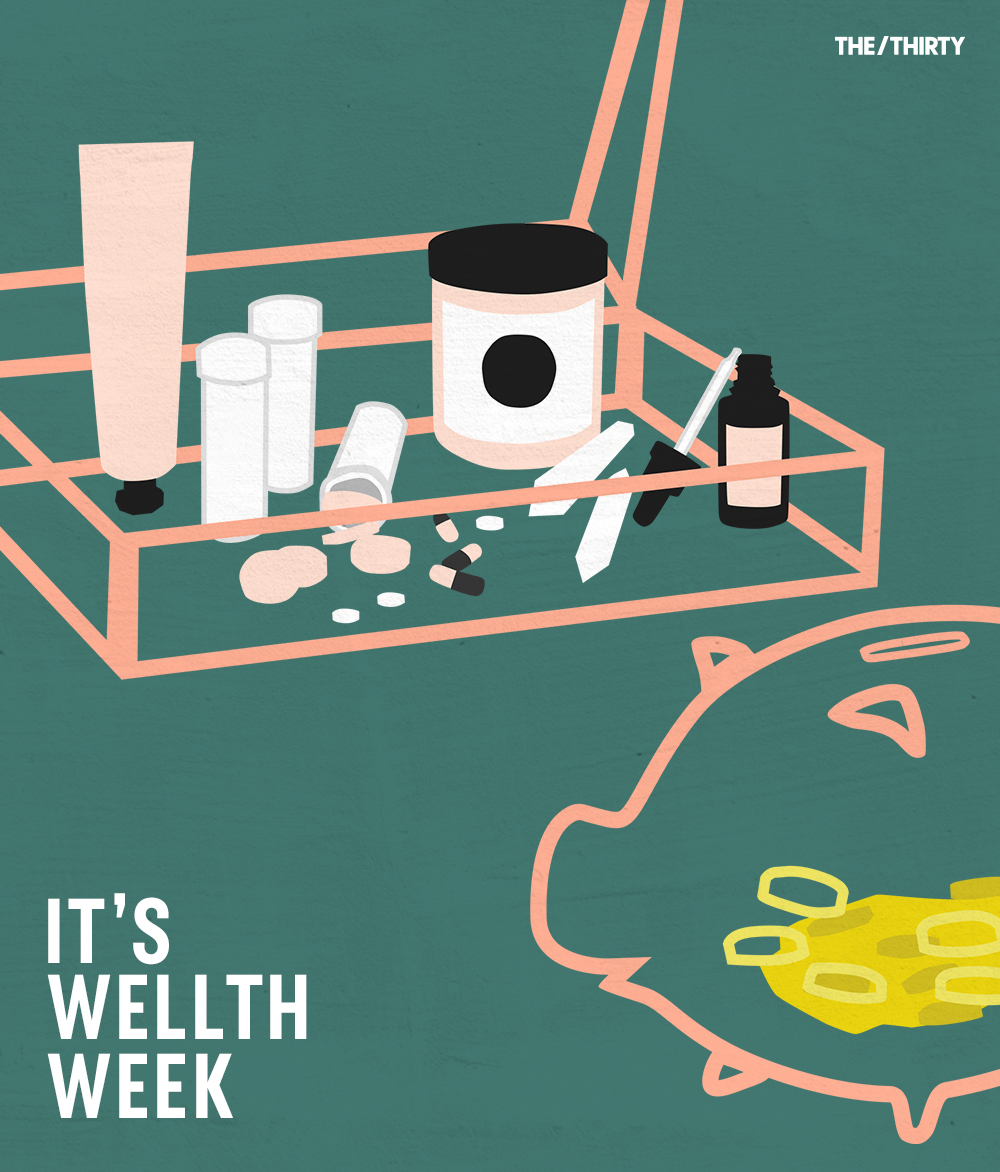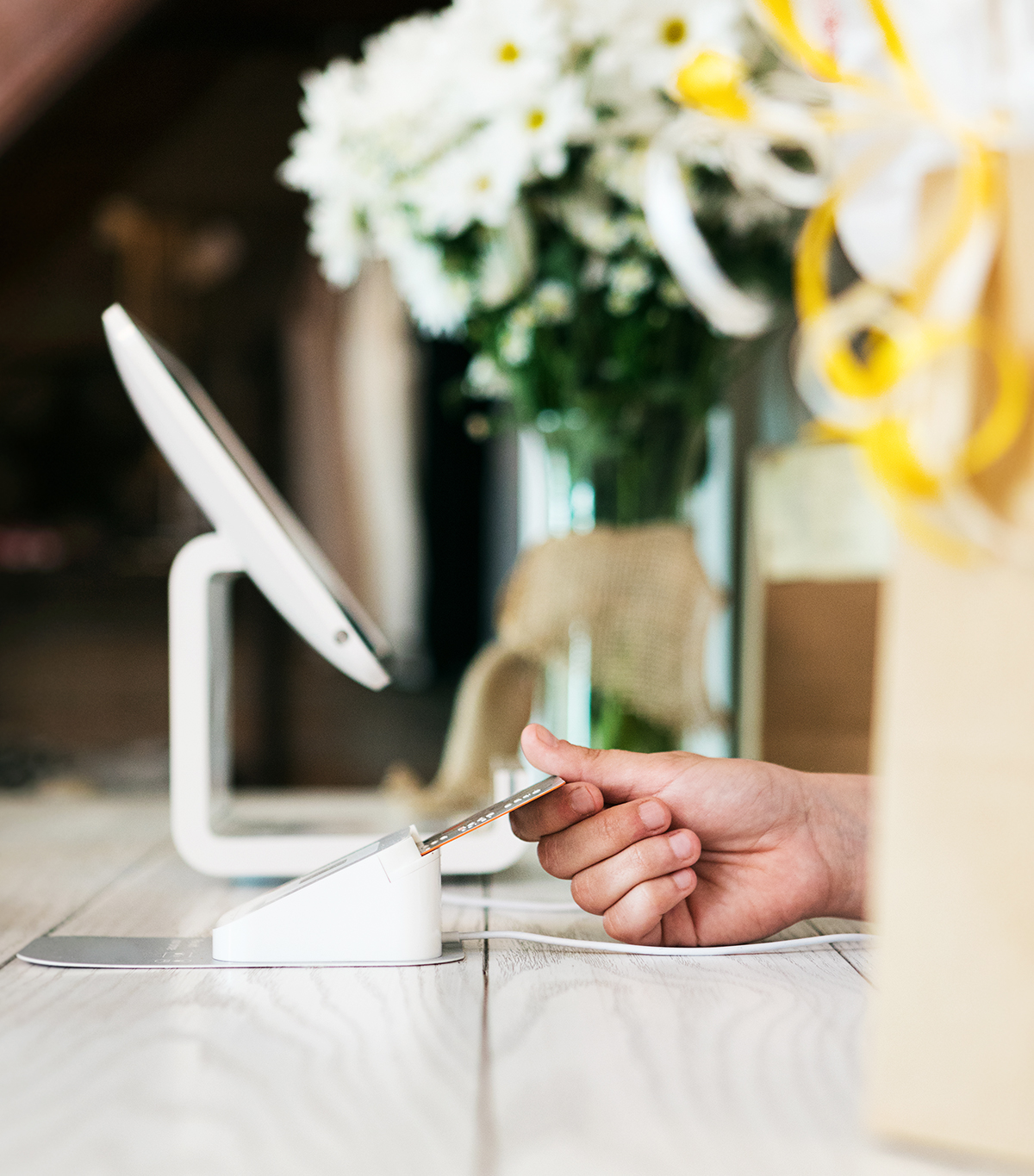How to Deal With Money-Related Anxiety Because It's Overwhelming AF


While financial stress isn't exactly a novel concept, our generation definitely feels the pinch more than ever: Research shows that 1 in 3 millennials experience anxiety about money. That's why this week, we're tackling financial wellness from every angle. Get expert advice on everything from the psychology of saving to investing when you have no clue where to begin. Financial empowerment is the ultimate goal—but you might just raise your bottom line, too.
Ever gone on an unplanned spending spree only to experience a sharp stab of buyer's remorse and anxiety about five seconds later? Same. Or maybe you have your spending habits relatively in check, but you're grappling with debilitating debt stemming from student loans, a mortgage, or other real-world things life decides to chuck at you the second you become an adult. Managing your finances is hard. It can be intimidating, it can be confusing, and it can lead to emotionally crippling anxiety. Especially, if you're in debt.
According to Keri Danielski, Mint's consumer finance expert, nearly 70% of American households have some form of debt. When you break it down, that umbrella percentage equates to $70,000 median debt for American households, $150,000 average mortgage debt, $33,000 typical student debt post-graduation, and $15,000 average credit debt. Eek. if this resonates, these statistics prove you're most certainly not alone. The silver lining is that there are healthy and helpful ways to cope with money worries and the exhaustive stress that often shows up as a side effect. To address the topic of financial anxiety, and to figure out how the heck to cope, we tapped Danielski to offer a lending hand in know-how. Not sure how to deal with money-related anxiety? Keep scrolling.
Step One: Assess How You're Feeling Mentally
In order to identify the underlying issues that are causing or worsening financial anxiety, it's important to take a step back and to assess your situation in a realistic mindset. Could your finance-related anxiety be correlated to underlying anxiety or depression? An unforeseen cost or life event? Taking a step back to think about what's truly driving money-related concerns is paramount.
"The state of our mental health can be a huge part of financial anxiety, and can actually lead to exacerbating it," explains Danielski. "People who suffer from mental health disorders may be more likely to overspend or ignore bills that can lead to default." For instance, even when we know certain spending behaviors won't help us in the long run as far as the health of our bank account, they can serve as a type of coping mechanism—albeit not the most strategic. However, financial anxiety doesn't discriminate, and it can also be related to denial or experiencing uncertainty where your overall financial situation is concerned, Danielski tells us.
"First and foremost, you need to take a step back and examine the issues you’re having with money and identify your problem areas," Danielski adds. "Next, you can determine which habits are causing problems. Money is so often tied to emotion, and it’s important to take a long look at what drives your anxiety. By finding out what your emotional connection is to money, and understanding the way this affects your values and actions, you can then start to tackle the problem."
2. Prioritize Your Budget—and Stick With It
Once you understand how your financial anxiety affects you and your approach to financial wellness, you'll have a better sense of what's driving any financial issues and where you might be able to cut back in spending.
"Part of this strategy is having a fairly rigorous budget, which may be difficult to adapt to, but provides more security and peace of mind than failing to plan at all," Danielski explains. If you take the time to plan, budget, and account for unforeseen expenses, you won't be taken by surprise (and susceptible to increased anxiety) if something unexpected does come up. Instead of scrambling to make ends meet, you can create a safety net and lessen your anxiety in the long run with a solid and realistic budget. Living within your means (aka resisting your credit card and only buying what you actually need and can afford) will also be effective ways to protect yourself.
Oh, and resist the temptation to yo-yo budget—when you start fast and furious only to eventually abandon your good-intentioned plan. "Whether you're budgeting for a special occasion (honeymoon!) or budgeting for a large purchase (new home!), people tend to start budgets and quickly abandon them once they've reached the end goal," says Danielski. "A budget is supposed to create a safety net for you, and if you begin to let it fall to the wayside, you're more likely to put yourself at future risk for financial anxiety—even if you're currently in a healthy place where money is concerned."
3. Think Seriously About Saving
"When unexpected expenses do come your way, and anxiety can be at an all-time high, having and maintaining a savings account provides extra security and never leaves you feeling unprepared," Danielski says. "Knowing you need to start saving (even if it’s just a little bit) to take advantage of the opportunities you’re given isn’t enough to get started. You need to know where to actually put that money. Make sure you’re enrolled in a retirement plan from your company, if it’s offered, and contribute enough to secure any employer match that may be available."
Next, Danielski recommends opening a Roth IRA and commit to making regular contributions. She reminds us that even though it may feel early and premature, developing smart and strategic savings habits in our 20s and 30s is one of the best ways to beat existing financial anxiety and, better yet, avoid it in the future. This way, you can improve and maintain these practices as your income increases and your career opportunities grow and develop.
4. Avoid Overspending

Which brings us to another critical step you need to take in order to start planning for your retirement—minding your spending practices. "If you can only save a little now because of a limited income, that’s okay," Danielski tells us. That said, as our income grows, so should our savings, not our spending. "You need to guard against lifestyle inflation if you want to build a significant nest egg that will see you through all your years after you quit actively earning an income. You want to add eggs to this nest—not take them away," she explains.
5. Realize That Details Matter—Especially for Retirement

This might not be too surprising, but skillfully planning for retirement starts with developing good financial habits. And once the healthy financial habits are there, it's time to start thinking about the details and what you want your future to look like.
"While nailing down a precise figure for how much you’ll need in order to retire is difficult, you can start refining your estimations," Danielski says. "Consider what your future goals are. What does your ideal retirement to look like? What level of lifestyle would make you happy? When do you want to stop relying on work for your income and switch to living off your investments? Your answers to these questions may change, so revisit them on a regular basis."
6. Talk it Out

To be honest, it totally sucks that talking about money issues (especially when you're in trouble) is considered taboo. Because in the grand scheme of things, that's when it's most important to talk about your finances. And as the statistics we cited above indicate, you're so not alone.
"Talking is the best form of release when it comes to financial anxiety. Everyone has to deal with money and their finances on a daily basis, yet it’s something that is rarely talked about," Danielski confides. "The simple act of talking about what’s stressing you out can be cathartic and might also allow you to connect with your friends, family, and co-workers." Plus, you never know what kind of helpful advice someone might have—especially if they are or have ever been in your shoes.
7. Consider an App

When it comes to creating a healthier relationship with money—be it managing your bills or creating a budget, technology is most definitely your friend and there are multiple apps that can streamline the process to make it less messy, less anxiety-provoking, and, heck, maybe even a little fun. For example, Mint is a personal finance app from Intuit, and serves as a super-helpful, non-intimidating resource for those who may be suffering from financial anxiety.
"Mint is an all-in-one place where users can take a step back, look at their finances in a holistic view, and proceed to organize through budgeting and receiving spending recommendations and expert advice," Danielski tells us. "Then, with tools like MintSights, users are able to grow with the app over time to help you save more money and find outstanding offers from our trusted partners."
Opening Image Credit: Stocksy
Next up, how to embrace change even when it feels scary.
This article is provided for informational purposes only and is not intended to be used in the place of advice of your physician or other medical professionals. You should always consult with your doctor or healthcare provider first with any health-related questions.

Erin has been writing a mix of beauty and wellness content for Who What Wear for over five years. Prior to that, she spent two and half years writing for Byrdie. She now calls Santa Monica home but grew up in Minnetonka, Minnesota, and studied writing, rhetoric, and communication at University of Wisconsin, La Crosse. She studied abroad in Galway, Ireland, and spent a summer in L.A. interning with the Byrdie and Who What Wear family. After graduating from UW, she spent one year in San Francisco, where she worked as a writer for Pottery Barn Kids and PBteen before moving down to L.A. to begin her career as a beauty editor.